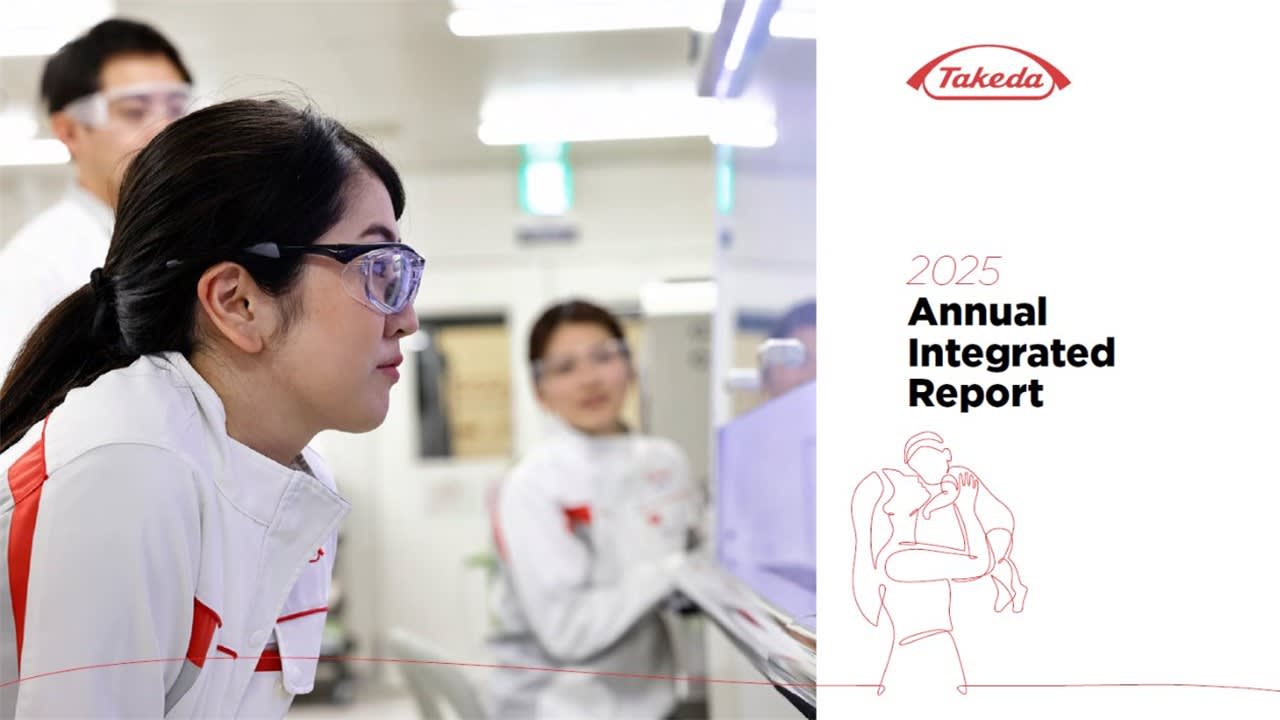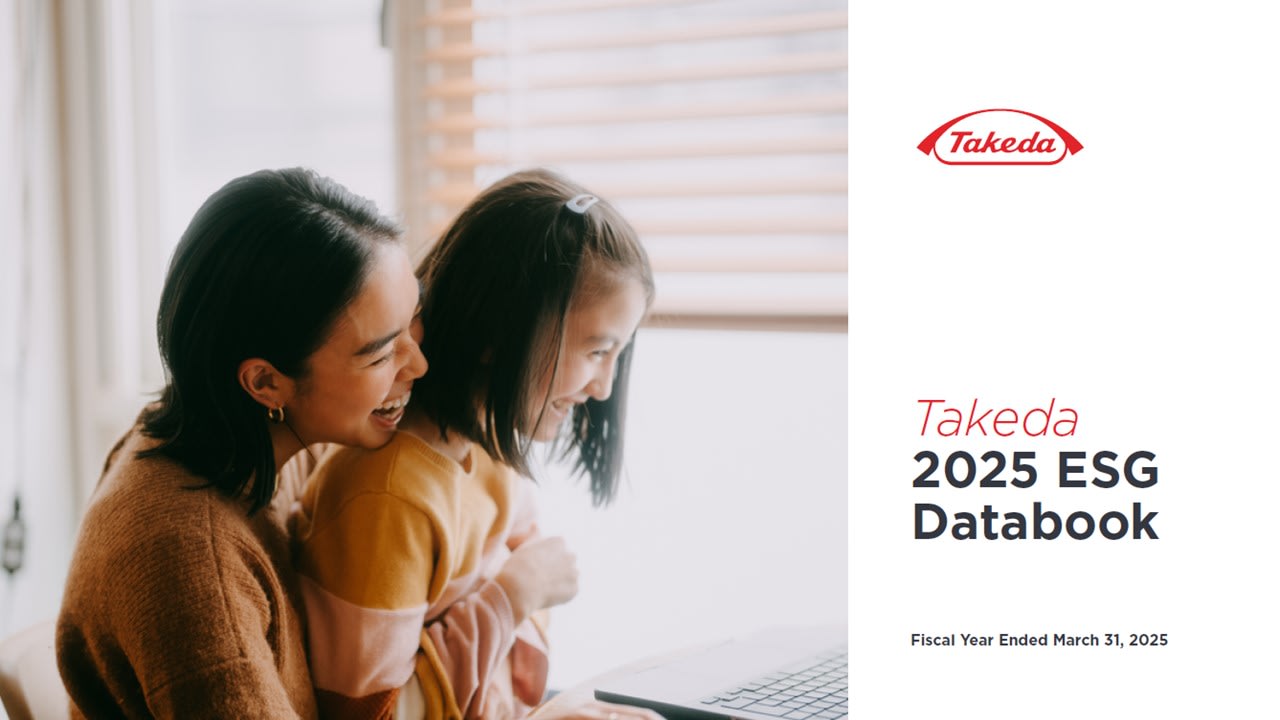Investor Information | Takeda Pharmaceuticals

Investors
We bring our values to life through actions based on Patient-Trust-Reputation-Business, in that order. We believe that if we focus first on Patients, Trust and Reputation, we know we will build a sustainable and high performing Business. These unwavering values are embedded in our global business model to create long term-value for patients, shareholders and society.

Takeda Announces First Half FY2025 Results
Takeda announced its results for the first half of fiscal year 2025 and revised full year outlook
Loading feed metadata...
Annual Integrated Report and ESG Databook
Innovation
Our world-class R&D is focused on developing medicines and vaccines that will have a lasting impact on society and can make a critical difference to the lives of patients with limited or no options for treatment. Our R&D pipeline is a clear demonstration of how we are working to deliver unique value to patients.
We continue to actively enrich the pipeline through our in-house R&D capabilities, external partnerships and targeted business development that align with our core therapeutic areas. Learn more about our R&D efforts here.
Sign up for our investors newsletter
Stay up to date on financial results, corporate milestones and learn how we're delivering on our commitment to patients, our people and the planet
Sign upDisclaimer
This website contains forward-looking statements regarding the Company's plans, outlook, strategies, and results for the future. All forward-looking statements are based on the judgments derived from the information available to the Company at the time of issuance of this site.
All forward-looking statements are based on judgments derived from the information available to the Company at this time. Forward-looking statements can sometimes be identified by the use of forward-looking words such as "may," "believe," "will," "expect," "project," "estimate," "should," "anticipate," "plan," "continue," "seek," "pro forma," "potential," "target, " "forecast," or "intend," or other similar words or expressions of the negative thereof.
Certain risks and uncertainties could cause the Company's actual results to differ materially from any forward-looking statements contained in this presentation. These risks and uncertainties include, but are not limited to,
the economic circumstances surrounding the Company's business, including general economic conditions in the US and worldwide;
competitive pressures;
applicable laws and regulations;
the success or failure of product development programs;
decisions of regulatory authorities and the timing thereof;
changes in exchange rates;
claims or concerns regarding the safety or efficacy of marketed products or product candidates;
integration activities with acquired companies.
We assume no obligation to update or revise any forward-looking statements or other information contained in this presentation, whether as a result of new information, future events, or otherwise.
The information on this website is provided for informational purposes and should not be construed as a solicitation of an investment in our securities.
You should rely on your own independent examination of us before investing in any securities issued by our company.







